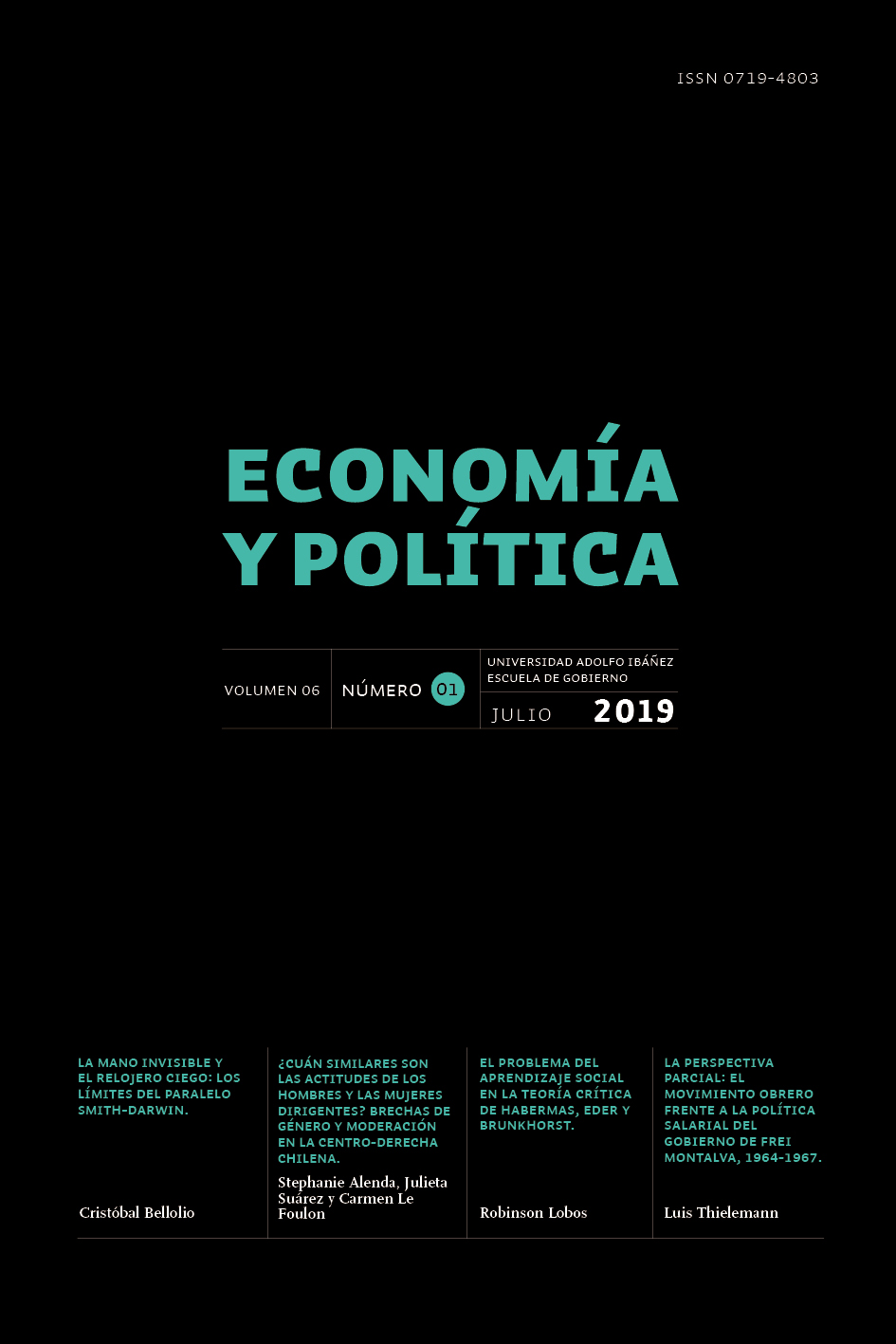The partial perspective: the labor movement against the wage policy of Frei Montalva’s government, 1964-1967
DOI:
https://doi.org/10.15691/07194714.2019.004Keywords:
Strike, Wages, Labor Movement, Developmentalism, Working ClassAbstract
During the first half of the government of Eduardo Frei Montalva and the Christian Democracy, there was a massive strike activity in Chile (1964-1967) whose main motives were related to the salary conditions of workers. This paper takes distance from the traditional interpretations that saw in the wage strikes of the 1960s either a form of natural activity of the labor movement, or a sign of its depoliticization or moderation. In contrast, it argues that they were politically thought actions performed by the workers’ movement. The partial rationality of the strikes resided in the strife for improving the workers’ movement position, and their consequences affected the political development of the country. Taking political conflict as its main historiographical perspective, the article studies the cycle of wage strikes begun in March 1965 with the challenge to the salary adjustment proposed by the Government and ended in the defeat of the forced wage savings plan known as ‘chiribonos’. During this cycle, a high degree of planning and development of political strategies is observed, accompanied by a radicalized discourse on the part of the workers’ movement in pursuit of its partial interest. In so doing, the paper presents a historical revaluation of the wage strike as a political practice.


